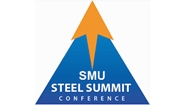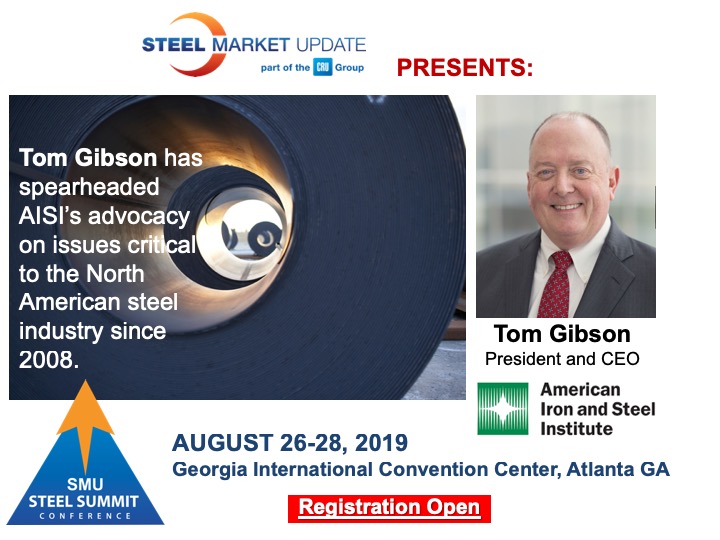Product

February 13, 2019
AISI's Gibson on Trade: "Still More Work to be Done"
Written by Tim Triplett
The following op-ed in support of steel tariffs, published last week by Alabama’s AL.com, was written by Thomas Gibson, president and CEO of the American Iron and Steel Institute. Gibson will be a keynote speaker at Steel Market Update’s 2019 Steel Summit, scheduled for Aug. 26-28 in Atlanta. This will be Gibson’s first appearance at what has become the premier steel conference in North America.
The American steel industry directly and indirectly supports more than two million American jobs. The economic engine of iron and steel is responsible for more than 76,000 jobs in Alabama alone, paying a total of $4.7 billion in wages and salaries annually, while generating nearly $22 billion in industry output and $2 billion in federal, state and local taxes. However, dumped and subsidized steel imports have damaged the health of the industry, causing steel plants across the country to close and production of certain steel products to move offshore.
In response to the steel crisis that has been more than a decade in the making, and after an extensive nine-month investigation by the Department of Commerce, the president last year determined under Section 232 of the Trade Expansion Act that imports of steel products threatened to impair our national security. He imposed a 25 percent tariff on steel imports.
This necessary action has allowed the American steel industry to begin to recover. Capacity utilization at existing mills has increased in recent months to more than 80 percent—levels not seen in the last 10 years. Steel shipments were 5 percent higher in 2018 than 2017. Steel imports have decreased 35 percent since the steel tariffs took effect in April 2018 through February 2019. The share of the steel market taken by imports has fallen from 29 percent last April to 20 percent in February.
The Section 232 trade remedy has also enabled investments in facilities—like the recent announcement by United States Steel Corp. to restart construction on an electric arc furnace steelmaking facility at its tubular operations in Fairfield, creating 150 jobs, and the planned $100 million investment by SSAB Americas in Mobile to increase production capacity for high-strength, value-added steels creating 50 new jobs.
While conditions in the American steel industry have improved recently due to the administration’s trade actions and tax and regulatory reform policies, there is still more work to be done.
There are nearly 500 million net tons of excess steel capacity in the world today. China’s record steel production exceeded one billion net tons in 2018—more than 10 times all of the American steel production. This, along with China’s high level of steel exports, continues to destabilize the global industry and threaten American steelmakers. If the Section 232 tariffs were prematurely removed, this excess production could easily flood into the United States, injuring the steel industry once again.
It is clear that the Section 232 trade remedy is critical to ensuring the steel industry remains a vital asset for our national and economic security, and at the forefront in developing the most advanced steel products. The American steel industry built this country. We want to keep American steel strong.








